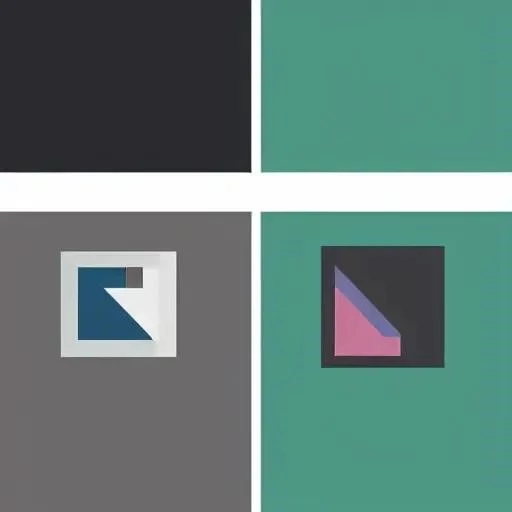
Today is 09/20/2025 09:39:19 ()
In an era increasingly defined by urgent calls for sustainability and unparalleled energy efficiency, a quiet yet profoundly influential organization has been diligently working behind the scenes, shaping the very illumination of our commercial and industrial landscapes. The DesignLights Consortium (DLC) stands as a guiding star, meticulously steering the lighting industry towards a brighter, greener future. Far from merely a certification body, the DLC is a dynamic force, a collaborative nexus where innovation meets environmental stewardship, ultimately driving a monumental shift in how we perceive and utilize light.
What began as a focused initiative to educate distributors on high-performance fluorescent lamps has blossomed into an indispensable arbiter of quality and efficiency for modern LED technology. The DLC’s mission is elegantly simple yet incredibly far-reaching: to accelerate the widespread adoption of high-performing commercial lighting solutions. By integrating insights from a vast network of energy-efficiency program administrators, policymakers, and industry experts, the Consortium provides decision-makers with invaluable data and resources. Their work profoundly influences product development, market acceptance, and ultimately, our collective ability to reduce energy consumption, carbon emissions, and even light pollution, thereby illuminating a path towards a more sustainable tomorrow.
| Attribute | Details |
|---|---|
| Organization Name | DesignLights Consortium (DLC) |
| Type | Independent Non-Profit Organization |
| Mission Statement | Dedicated to accelerating the widespread adoption of high-performing commercial lighting solutions, providing data and resources on quality lighting, controls, and integrated building systems to reduce energy, carbon, and light pollution. |
| Year Founded | 1998 (as a commercial lighting initiative) |
| Key Initiatives | Qualified Products List (QPL) for LED Lighting (launched 2010), Networked Lighting Controls Program (launched 2015), LUNA Technical Requirements (focus on light pollution), creating technical requirements and performance standards. |
| Membership | 78 members (includes regional, state, utility, and energy efficiency programs from the US and Canada). |
| Parent Organization | Efficiency Forward, Inc. (Initiator); Project of Northeast Energy Efficiency Partnerships (NEEP) |
| Official Website | www.designlights.org |
Crucially, for over two decades, the DLC has evolved with remarkable agility, consistently adapting to the rapid pace of technological advancement within the lighting sector. Its foundational work began in 1998, initially focused on educating stakeholders about the superior performance of T8 fluorescent lamps. However, recognizing the burgeoning potential and increasing market share of LED technology, the Consortium pivoted strategically. This foresight led to the monumental launch of its Qualified Products List (QPL) in 2010, which swiftly became the industry’s gold standard for validating the performance and energy efficiency of LED lighting products. This pivotal shift underscored the DLC’s unwavering commitment to staying at the forefront of lighting innovation, ensuring that only the most rigorously tested and high-performing solutions make it to market.
The impact of the QPL cannot be overstated; it serves as a robust benchmark, guiding countless decisions made by facility managers, architects, and energy program administrators across North America. Manufacturers, recognizing the critical importance of DLC certification, meticulously design and test their products to meet these stringent requirements. For instance, global high-tech lighting companies like Osram have proudly announced the listing of their innovative systems, such as the ENCELIUM EDGE Standalone Wireless Light Management System, on the DLC’s esteemed list. Similarly, Toggled iQ’s smart building data and device management system gained inclusion on the DLC Networked Lighting Controls program, showcasing the Consortium’s expanding purview beyond just luminaires to integrated systems.
Beyond merely listing products, the DesignLights Consortium is actively shaping future policy and technical standards. Their LUNA Version 1.0 Technical Requirements, for example, represent a forward-thinking initiative explicitly designed to distinguish products that minimize light pollution – a growing concern for both environmentalists and urban planners. By proactively addressing issues like sky glow and glare, the DLC is not only promoting energy savings but also fostering healthier ecosystems and enhancing human well-being. This comprehensive approach, spanning from lumen output to ecological impact, solidifies the DLC’s role as a holistic steward of responsible lighting practices.
As an independent non-profit organization, the DLC’s authority stems from its impartiality and its deep collaboration with 78 members, including utility companies and energy efficiency programs from both the United States and Canada. This collaborative spirit fosters a robust ecosystem where knowledge is shared, challenges are addressed collectively, and advancements are rapidly disseminated. Expert opinions from within this network consistently highlight the DLC’s role as a vital catalyst for market transformation, pushing manufacturers to innovate and consumers to adopt more sustainable solutions. By making complex technical information accessible and trustworthy, the DLC empowers decision-makers to invest confidently in lighting technologies that deliver both superior performance and demonstrable environmental benefits.
Looking ahead, the influence of the DesignLights Consortium is poised to grow even further. As smart building technologies become increasingly prevalent and the demand for integrated, energy-responsive systems intensifies, the DLC’s expertise in networked lighting controls will be more critical than ever. Their ongoing commitment to developing rigorous performance standards, fostering industry dialogue, and championing advanced lighting solutions ensures that they will remain at the forefront of the energy efficiency movement. The DLC is not just about certification; it is about cultivating a future where every flick of a switch contributes positively to our planet, illuminating a path towards unparalleled efficiency and a brilliantly sustainable world.
